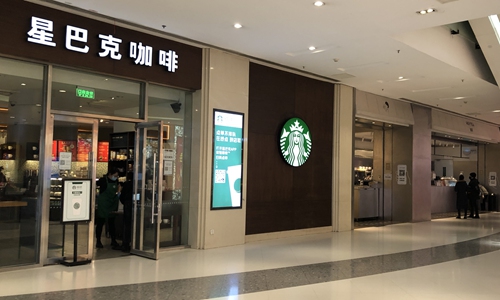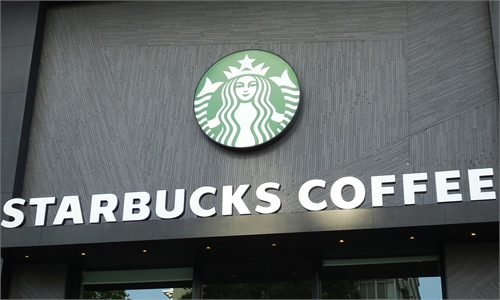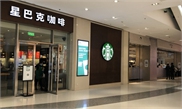
A view of a Starbucks outlet in Beijing in March Photo: Zhang Hongpei/GT
A Starbucks located in South China's Guangdong Province was issued a warning by the local market regulator for failing to store expired food in accordance with the health and safety regulations, after the US coffee chain was exposed for using expired ingredients in its food and beverages in East China earlier this week.
On Monday, the market supervision authority in Wuxi, East China's Jiangsu Province held talks with coffee giant Starbucks, after the company's two shops in the city were exposed in a food scandal involving expired ingredients.
One day later, a second Chinese city in Suzhou, East China's Jiangsu Province identified food safety issues at a local Starbucks including uncovered garbage bins in the store's food preparation areas, employees not wearing masks, and mixed storage of food and non-food in the store's warehouse.
"Being in the Chinese market for 22 years, Starbucks has always devoted itself to strict food safety standards with zero tolerance for food safety problems," Starbucks said on Monday in a post shared on Chinese social media platform Sino Weibo.
The company has been fined and warned twice this year for sale of expired food. It was not the first time for its Shenzhen-based company to be found with food safety issues. In November, another location was also warned for storing expired moon cakes in a food cabinet, a penalty notice released by Shenzhen Administration for Market Regulation showed.
And in April, a branch in Ningbo, East China's Zhejiang Province was fined 10,000 yuan ($1,572) for selling expired food.
Analysts said that the company should carry out a comprehensive review to avoid similar breaches occurring in the future, in addition to regaining market trust.
According to its official website, Starbucks has more than 5,100 locations in more than 200 cities across China. The company reported third-quarter revenue in China of $910 million for 2021 fiscal year, an increase of 45 percent compared with the same period last year.
Global Times



